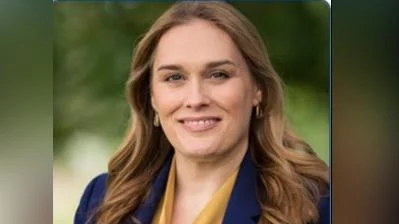Roughly 280 forensic scientists are working in Illinois, with approximately 70 who focus on DNA. | PxHere
Roughly 280 forensic scientists are working in Illinois, with approximately 70 who focus on DNA. | PxHere
The Senate Public Health Committee held a hearing Monday involving DNA evidence processing delays, when mothers whose sons were killed spoke out about not having closure due to the delays in processing.
Carmia Tang's and Regenice McBride's sons were killed last year during separate incidents in the Chicago area, but their DNA was never processed and their murders remain unsolved.
Both women spoke about how they have tried to get the Chicago police to work on their sons murders to no avail.
Two panels spoke in front of the committee, which only comprised of two state senators, Sens. Patricia Van Pelt (D-Chicago) and John Mulroe (D-Chicago), as the rest were not in attendance.
"There's no reason the other senators shouldn't be here," said Rev. Robin Hood, an anti-violence activist. "That's unacceptable. We're talking about the DNA of 700-something people, and that affects Chicago."
The first panel was comprised of Hood; Tang, a Chicago citizen and member of Sisterhood, a group of mothers who lost their children to gun violence; McBride with a non-violence group; Louvenia Hood, the executive director of Mothers Opposed to Violence Everywhere; and Teresa Smith and Shannon Bennett, with Kenwood Oakland Community Organization.
Tang's son was killed in 2017.
"The year my son was killed, Chicago spent half a million dollars to clean up the park for Lollapalooza," she said. "But they don’t have enough money to process DNA? This is unacceptable."
Tang believes her family deserved closure and that the police department should have at least attempted to solve her son's murder.
"My son's DNA evidence in his case still isn't being processed," she said.
Tang pointed out that Chicago has a 17-percent solve rate for murders.
"They blame it on the code of silence, but here we are not processing DNA from these cases," Tang said. "They say they lack in funding and lack in staffing, but they can spend half a million dollars to clean up the park after Lollapalooza."
Tang said she is insulted that the state feels the DNA collected in her son's case is not even worth processing.
"I'm a taxpayer," Tang said. "I'm a government worker. I pay taxes just like anybody else. I deserve the closure to know that, at least, they attempted to solve his murder."
Tang said the DNA might not solve her son's murder, but it could help solve others.
"This has become so much bigger than me and my son," Tang said. "We’ve got to do better than this. Whatever needs to be done, I'm here to fight the fight."
McBride continued the discussion by saying she wanted justice for her child, Ronald Terrel James, who was shot and killed in 2017 in West Town.
"I have not had any closure," McBride said. "No one seems to care about our young men today."
McBride said James has five children who have been left without a father.
"Some nights I don't even sleep because I want justice for my child, my grandchildren and myself," McBride said. "I'm asking for peace. I haven't had peace in a year. That is all I'm asking for."
The second panel to speak involved Col. Sean Cormier and Cmdr. Arlene Hall with the Illinois State Police Forensic Department.
Cormier said the state police was striving to make improvements.
"We are absolutely not happy with the backlog and are doing everything we can," Cormier said. "We're working hard every day to address the issue."
Hall said they needed a staff of at least 81 in the forensics department to get the backlog back down to a manageable number.
"If we can find any way possible to erase the backlog and work cases as they cross the counter, we are working on it," Cormier said. "We want to keep scientists on the bench instead of doing other things."
Hall explained that, due to the staff shortage, scientists are answering phones and doing other tasks that take them away from their station.
One of the senators present, Van Pelt, recommended outsourcing, which Cormier said they are already doing to some extent, but that their priority is enhancing the in-house work so that more can be handled internally.
Mulroe asked how many crime lab employees the state police had across the state.
Hall said there are about 280 forensic scientists in Illinois and approximately 70 working in DNA.
Cormier and Hall suggested that, with several more forensic scientists specializing in DNA, the backlog could be gone within five years.
"We need that backlog gone in two years, not five," Van Pelt said.
According to Cormier, the state police currently has evidence for nearly 3,700 cases at the lab, including 752 murder cases.






 Alerts Sign-up
Alerts Sign-up